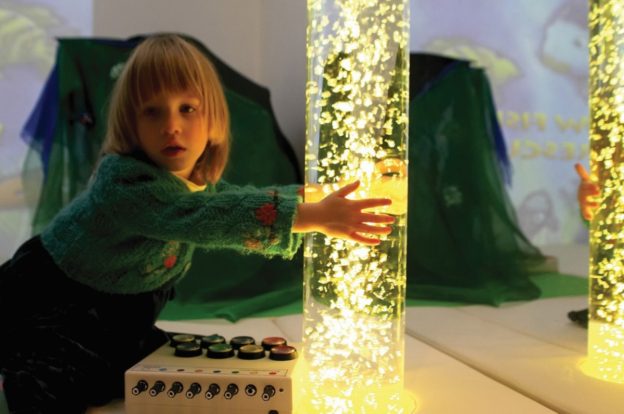Our aim is for parents to feel as educated and equipped as possible to spot the early stages of autism. To spread awareness of the condition and discuss signs of autism in babies and how to recognize them. Autism spectrum disorder (ASD) is a neurodevelopment disorder that has a number of characteristics including social and cognitive impairments, communication difficulties, and repetitive behaviors and interests.
Parents usually notice early stages of autism in toddlers as signs of mild autism can be identified through behavioral symptoms in many children from 12 to 18 months of age, but sometimes signs can be spotted even earlier.

The majority of children aren’t diagnosed with autism until the age of 3, as many parents are not aware of signs of autism in babies. Most parents begin to notice when their child has difficulties with speech and communication and misses the key stages of development.
Here is a list of some of the most recognizable early stages of autism to look out for:
It’s also important to mention that regression can happen in some children too. Certain individuals can stop using the social and communication skills they have already been taught. Regression means that children can stop using language, no longer have an interest in playing, and even their general social skills can seem to deteriorate.

If you think your child may be displaying early signs of autism, the recommended next step is to go to a developmental screening in order to determine if your child is learning basic skills without noticeable delay. For example, the doctor during this process may play a simple game with the child to see how they learn, communicate, and behave.
Please bear in mind that if your child was born prematurely, was a low birth weight, has a sibling with ASD, or strong behaviors or significant delays are noticed, additional screening may be required.
Your child’s doctor should be providing a developmental screening test during routine check-ups. If you feel these are not being carried out you should ask them to include the screening in your next appointment.
If a doctor recognizes signs of ASD, a comprehensive diagnostic evaluation (a thorough review) will be undertaken. This involves a more detailed assessment into behavior and development, including an interview with parents. In addition, this process may also include a vision and or hearing screening, as well as genetic and neurological testing if the doctor deems it to be appropriate.
In more advanced cases, a doctor may refer children to a specialist, who can carry out further assessment and diagnosis. These specialists can include; developmental pediatricians, child neurologists, or child psychiatrists.
We hope this blog post helps you identify the early stages of autism if you suspect your child may be developing autism. If you are in doubt, book an appointment with your doctor and ask them to undertake a developmental screening in order to determine their abilities and how you are able to help them based on the results.
For more information on multisensory products that can be used to help children with autism, please contact us for helpful, professional, and friendly advice tailored to your needs.